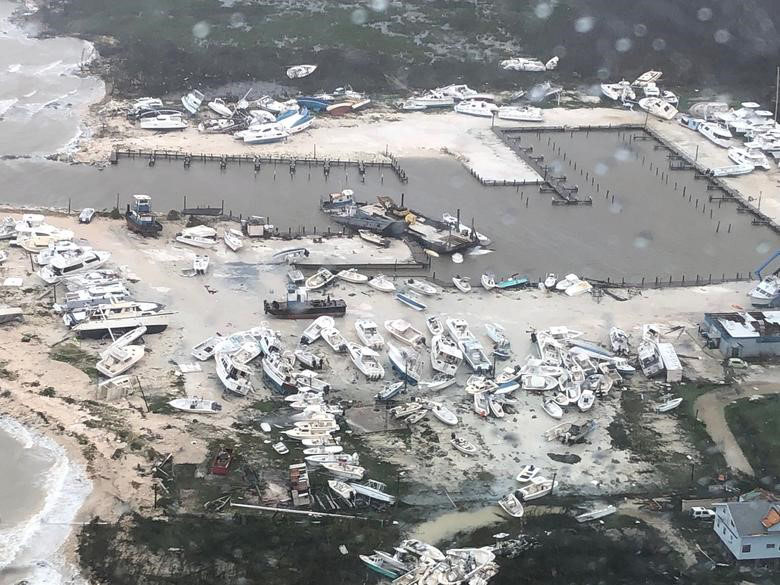The Government of Guyana will be putting systems in place to assist The Bahamas following the devastating effects of hurricane Dorian.
According to a press statement released last evening Director General of the Civil Defence Commission (CDC), Lieutenant Colonel Kester Craig will be meeting with members of the Private Sector Commission tomorrow with a view to mobilising and dispatching resources to the hurricane-ravaged islands.
Craig noted that the Minister of State, Dawn Hastings-Williams has been updated on the situation and has already briefed Cabinet on Guyana’s preparedness to respond.He noted that the CDC plans to establish accounts at various commercial banks in Guyana so persons can make donations for relief efforts on the island. The accounts’ information will be circulated as soon as they are made available. The monies raised would be used to support response teams deployed as well as to establish and manage shelters and to procure relief supplies.
The Commission will also be reaching out to Guyanese living in The Bahamas who were impacted, through the Ministry of Foreign Affairs, to determine what level of support is needed.
The Caribbean Disaster Emergency Management Agency (CDEMA) is monitoring the effects of Hurricane Dorian and the Rapid Needs Assessment Team (RNAT) located in The Bahamas has prepared a pre-impact analysis, in collaboration with the national lead agencies, which is currently being reviewed by the Government of Bahamas through the National Emergency Management Agency (NEMA).
Reports on the impact of the Category five Hurricane state that the devastation is unprecedented and extensive, with many homes, businesses and other buildings completely or partially destroyed.
Immediate needs have been identified by the country as water pumps, reverse osmosis plants, bladder tanks, generators and hygiene kits but according to Craig the most appropriate need at this time is financial support. Additionally, CDEMA has made a request for an Oil and Gas Specialist in refineries to be identified within the member states so they can be deployed to the island as part of the RNAT. The CDC is in contact with the Department of Energy (DoE) and other key partners to identify such an expert.
On Sunday, September 1, 2019, Hurricane Dorian made landfall on The Bahamas at Elbow Cay, Abacos Islands at approximately 12:40 pm with 185 mph winds. On Tuesday, September 3, 2019, it was downgraded to a Category 3 hurricane, still exhibiting slow forward movement. As such, the impact to Grand Bahama is still expected over the next 12 hours. The total population expected to be affected on Grand Bahama and Abacos Islands is estimated at 76,278. So far seven persons have been confirmed dead on Abacos Islands. Government has expressed its solidarity with The Bahamas and its people who were affected by Hurricane Dorian. “In collaboration with CDEMA, we commit to tangibly doing our part to contribute to relief efforts,” the statement noted.










